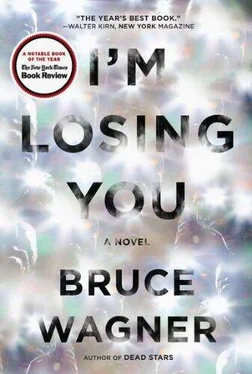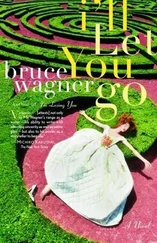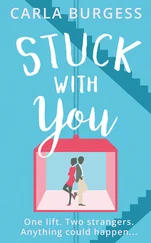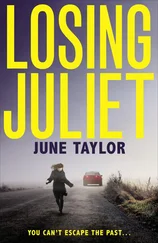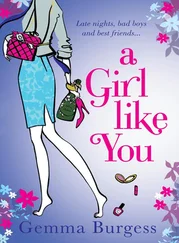The billionaire smiled as he edged past the table. Stone leaned over and whispered. “See the watch he’s wearing?” Perry hadn’t. “Il Destriero Scafusia: what they call a ‘grande complication.’ Ask him to show it to you, he’d love it. Swiss — seven hundred and fifty components, sapphire crystal, seventy-six rubies inside. We’re talking mechanical , nothing digital about it. I used to collect, mostly Reversos and Pateks; had a thirties Duoplan, Jaeger-Le Coultre. Le Coultre’s hot this year. Loved the thing to death. But this one,” nodding at the billionaire again, now at Frank Stallone’s table, chatting up a long-legged girl with a huge mouth, “is the fucking grail —they call ’em ‘super complicateds.’ I mean, the fucking thing chimes , Perry! It shows the changing of the century on its face, the fucking century ! I got a watch, cost me seventeen grand, a Blancpain quantième perpetual . Has a moon phase I used to adjust about every three years. And that’s pretty good. But this motherfucker”—nodding to the freak again—“has a deviation of about a day every hundred years.”
Just before leaving, he found himself at the urinal next to Il Destriero Scafusia. A watch like that probably wound to the movement of the wrist; Perry shook himself and suppressed a laugh, scanning the ceiling for hidden cameras. The billionaire followed him to the sink. Had he been keener on inquiring after baubles, Perry might have asked for a look. He’d done enough of that over the years — everything had always been out of reach. Now, nothing was. Nothing, that is, but time.
Ursula Sedgwick
Ursula and Tiffany weren’t homeless anymore. They lived in a house on one of the old canals.
Their neighbor, Phylliss Wolfe, was a producer who sold her Cheviot Hills home after having some kind of breakdown. She called it “Down(scaling) Syndrome”—movie projects were on hold so she could finish her book and get pregnant. She wasn’t happy about the local gangs, but it had always been a fantasy of hers to live this way: in a writer’s bungalow on an ellipsoid patch of grass still called United States Island. She christened the avenue Dead Meat Street because so many were dying of AIDS, or gone.
On Sundays, they went strolling on the boardwalk. Phylliss brought Rodney the dachshund, fearless sniffer of pit bulls; while Ursula and Tiffany had their fortunes told, she binged on cheap sunglasses. They shared life stories over time, shocked to have Donny Ribkin in common. Every little detail about the agent came out, including sexual proclivities — which Phylliss expanded to include the affair with Eric, her ex-assistant. Ursula blanched. It stunned her to learn Donny’s father recently drowned in Malibu; that was someone he never talked about. But the worst thing was hearing he’d been hospitalized for a crack-up. “Hollywood rite of passage,” Phylliss joked. “Don’t knock it till you’ve tried it.” Ursula felt sick inside. He was still her man.
She’d never met anyone like Donny — so smart and chivalrous and full of passion. If that’s what Jews were like, you could sign her up for more. He scared her too, but men did, that was par for the course. He was the first lover to lavish any kind of gifts on her. At a time in her life when she really needed it, Donny Ribkin gave her a whole new way of seeing herself. They used to go “power shopping,” buzzed on crystal. He got her an Oscar de la Renta at Saks, a seven-thousand-dollar strapless sequined gown, and there she was that very same night at a charity ball honoring Forrest Gump ’s Robert Zemeckis, the greatest night of her life, speed-grinding her teeth as she eavesdropped on Michael J. Fox and Meryl Streep and God knew who else, Donny’s friends, their smiles like razors. Then he would brutalize her in bed, punching and choking her as he came, reviling her idiot faux pas. How could you say what you said to Goldie? Once he made himself vomit on her. But there was the other Donny, her “Sunday morning boy,” who cried inconsolably for hours on end, begging forgiveness, tears from some faraway place like a sad, hip monster from The X-Files —the Donny who paid Tiffany’s schooling and wept for his dead mother.
He could be cruel, but at least he wasn’t one-sided. Ursula knew nothing but violent men, military father and brothers, men with just one side. The day came when she’d had enough, walked from the trailer park bloodied, holding Tiffany’s bitty hand, living shelter to shelter, freeway to freeway, rape to rape, with only The Book of Urantia to grace and solemnize each day — the Book, with its Morontia Companions (trained for service by the Melchizedeks on a special planet near Salvington) and Thought Adjusters (seraphic volunteers from Divinington). She prayed with Tiffany for the Mystery Monitors to come, “who would like to change your feelings of fear to convictions of love and confidence.”
There was The Book of Urantia and there was her daughter and then one day — off-ramp miracle — there was Donny Ribkin. Now, he shunned her. She still worked at Bailey’s Twenty/20 and began each shift hoping the agent would drop in. The men she stripped for had his face; she made it so. One day it would come to pass. Ursula wasn’t sure how she had turned him off like that — was it her homeless helplessness that turned him on? None of it mattered. This alluring, troubled, soulful man had seen her at her worst and not turned away. For that, she would love him forever.

“You need something to fill this black hole,” Phylliss said. “Donny Ribkin is a panacea . If it wasn’t him, it’d be someone else. Something else. Listen, he’s no catch, okay? He’s fucking loonie tunes . Not to mention a probable health risk at this point. So why don’t you deal with your black hole?”
“Then what do I fill it with?”
“A sausage — a fat, hairy sausage with a ‘Donny’ tattoo.”
“You’re terrible,” she said, laughing. She could still laugh.
“Have you ever heard of Eckankar?” Ursula shook her head. “They call it the religion of ‘the Light and Sound of God.’ The name’s from Sanskrit — it means ‘co-worker with God.’ But it isn’t a Christian thing. It isn’t an anything .”
They said the odd word a few times together. Phylliss told Ursula that she turned to the practice out of desperation: her movie had fallen apart, and she’d suffered the death of a fetus and father — how she’d gone to a hospital to heal but emerged more shattered than whole. ECK reached out and stopped her fall. Since then, it was the most important thing in her life, bar none. “I’ve become a ‘spiritual activist,’” she said. “My New York friends are about ready to do an intervention. I just tell ’em I want to have Yanni’s child. Or John Tesh’s, in a pinch.”
From what Ursula understood, Eckankar was less a religion than it was about dreams and soul travel and accepting other planes. That was familiar ground. She was impressed someone as cynical and sophisticated as Phylliss could have allegiance to a thing so radically ethereal; then again, with the terrible abuse Phyll had been through with her dad and all, you would have to let in something new, unless you wanted to go bonkers. When she brought up Urantia, Phylliss yelped “Dueling cultists!” and strummed an imaginary banjo, laughing her coarse cigarette laugh. Ursula said she had considered converting to Judaism as a way of winning Donny back — that sent Phylliss on a coughing jag. “You’re the only person I know,” she said, “who’s more fucked up than I am.” She invited her to Sunday morning worship services at the ECK Center. After a month of wheedling, Ursula gave in.
Читать дальше
